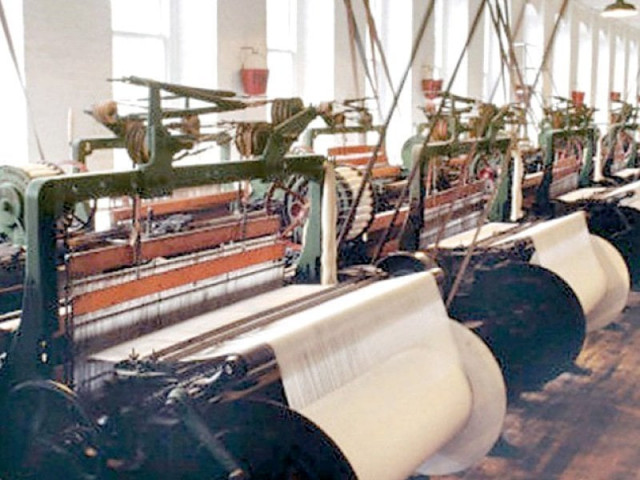Incentive package to boost Pakistan’s competitive edge
Textile exporters term the Rs180b package very positive

PHOTO: FILE
“The ball is now in our [textile exporters] court, the government has done what it should do,” said Ziad Bashir, Executive Director of Gul Ahmed Textile Mills, one of the country’s largest composite textile mills.
PM Nawaz announces Rs180 billion package for exporters

The package, announced by the prime minister on Tuesday, would have a very positive impact on textile exports, he said, believing it would take some time like four to six months before the favourable impact started reflecting in the country’s exports.
Analysts point to the declining competitiveness of Pakistani exporters against regional peers while citing the rationale behind the announcement of the package.
The cost of doing business including gas and power tariffs, gas infrastructure development cess (GIDC), sales tax and high value of the rupee against the dollar has put pressure on export sectors in general and textile in particular.
“The package is very good for textiles, though its announcement had been due for over two and a half months,” former All Pakistan Textile Mills Association (Aptma) chairman Yassin Siddik told The Express Tribune.

The measures announced in the package would bring the cost of production down and eventually increase the competitive edge of exporters in the international market, he added.
He, however, decried that the government’s recent decision to withdraw the reduction in gas prices would not bode well for the textile industry.
Textile millers demand incentive package
According to AKD Research, initial information suggests that the package includes higher rebates in the range of 4-7% on freight-on-board (fob) value of different textile products (4% on yarn, 5% on fabrics, 6% on made-ups and 7% on garments). Under the current policy, rebates are allowed on incremental exports, ie, if export growth exceeds 10%.
Moreover, 4-5% duty/sales tax on cotton imports and general sales tax on the import of textile machinery have been removed under the package.
Textile sector in the limelight at PSX
The Pakistan Stock Exchange (PSX) took the package positively and most of the listed textile companies closed in the black when trading session ended on Tuesday.
Nishat Mills and Nishat Chunian were major gainers in the textile sector. Nishat Mills closed at Rs162.23, up 1.43% while Nishat Chunian ended at Rs70.69, up 1.37%.
However, the benchmark KSE 100-share Index fell 173 points and stood at 48,865.
Published in The Express Tribune, January 11th, 2017.
Like Business on Facebook, follow @TribuneBiz on Twitter to stay informed and join in the conversation.



















COMMENTS
Comments are moderated and generally will be posted if they are on-topic and not abusive.
For more information, please see our Comments FAQ